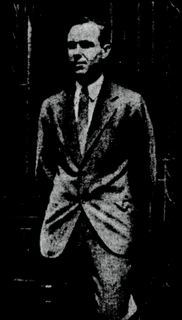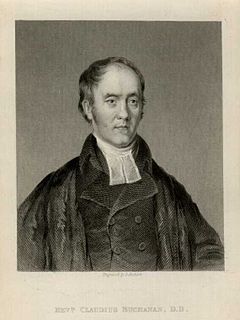A Quote by Bertrand Russell
History is valuable, to begin with, because it is true; and this, though not the whole of its value, is the foundation and condition of all the rest. That all knowledge, as such, is in some degree good, would appear to be at least probable; and the knowledge of every historical fact possesses this element of goodness, even if it posses no other.
Related Quotes
It is easy to see, though it scarcely needs to be pointed out, since it is involved in the fact that Reason is set aside, that faith is not a form of knowledge; for all knowledge is either a knowledge of the eternal, excluding the temporal and historical as indifferent, or it is pure historical knowledge. No knowledge can have for its object the absurdity that the eternal is the historical.
For the Humanist, . . . head and heart . . . must function together. . . . The constitution of the Phillips Exeter Academy reads: 'Though goodness without knowledge . . . is weak and feeble, yet knowledge without goodness is dangerous. . . . Both united form the noblest character and lay the surest foundation of usefulness to mankind.'
Surely knowledge of the natural world, knowledge of the human condition, knowledge of the nature and dynamics of society, knowledge of the past so that one may use it in experiencing the present and aspiring to the future--all of these, it would seem reasonable to suppose, are essential to an educated man. To these must be added another--knowledge of the products of our artistic heritage that mark the history of our esthetic wonder and delight.
A scholar's business is to add to what is known. That is all. But it is capable of giving the very greatest satisfaction, because knowledge is good. It does not have to look good or even sound good or even do good. It is good just by being knowledge. And the only thing that makes it knowledge is that it is true. You can't have too much of it and there is no little too little to be worth having. There is truth and falsehood in a comma.
So the problem in the West is that, especially in places like the USA, a person will obtain this much knowledge and immediately think that they have a large amount of knowledge. And then start to act on the basis of what they think, they posses. Instead of having this much knowledge and realizing that in fact this is only this much knowledge and the amount of where you can go there is where you came is much bigger than where you've already gotten.
I believed even then that if I could transform my experience into poetry I would give it the value and dignity it did not begin to possess on its own. I thought too that if I could write about it I could come to understand it; I believed that if I could understand my life—or at least the part my work played in it—I could embrace it with some degree of joy, an element conspicuously missing from my life.
To begin with, our knowledge grows in spots. The spots may be large or small, but the knowledge ever grows all over... What you first gain from them is probably a small amount of new information, a few new definitions, or distinctions, or points of view. But while these special ideas are being added, the rest of your knowledge stands still, and only gradually will you 'line up' your previous opinions with the novelties I am trying to instil, and modify to some slight degree their mass.
So the state founded on natural principles is wise as a whole in virtue of the knowledge inherent in its smallest constituent class, which exercises authority over the rest. And the smallest class is the one which naturally possesses that form of knowledge which alone of all others deserves the title of wisdom.
The fact that these scientific theories have a fine track record of successful prediction and explanation speaks for itself. (Which is not to say that I don't directly discuss the work of those philosophers who would disagree.) But even if we grant this, many will argue that scientific knowledge in humans, and, indeed, reflective knowledge in general, is quite different in kind from the knowledge we see in other animals.
Did it ever strike you that goodness is not merely a beautiful thing, but by far the most beautiful thing in the whole world? So that nothing is to be compared for value with goodness; that riches, honor, power, pleasure, learning, the whole world and all in it, are not worth having in comparison with being good; and the utterly best thing for a person is to be good, even though they were never to be rewarded for it.



































